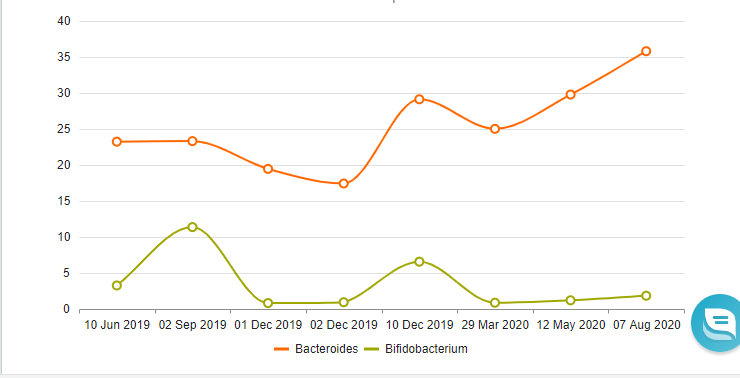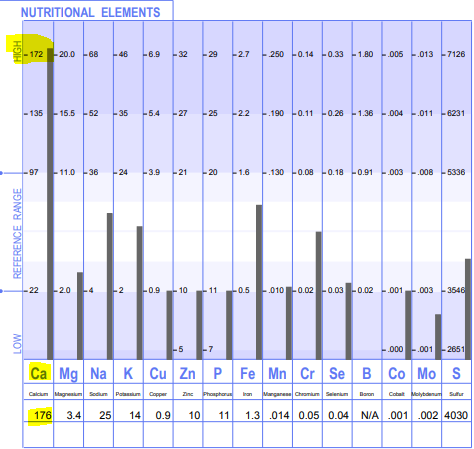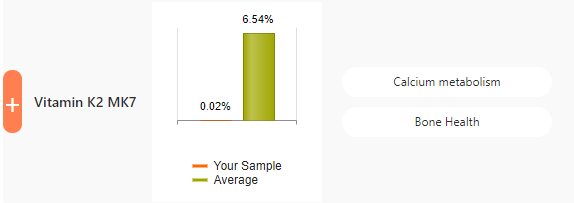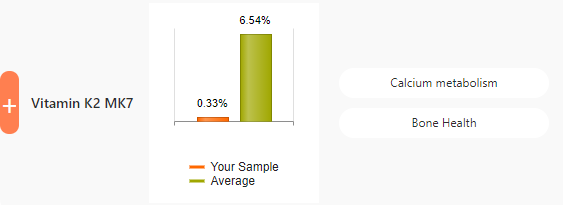
Why I found gut microbiome testing so meaningful
It took me a while to decide to share my story publicly. I gave in as it would answer an important question I get asked from time to time. What made me decide to do a gut microbiome startup? More importantly though, telling my story could also potentially help others in similar circumstances. I know there's too many of us out there.
In my early thirties my health started deteriorating, first manifesting through the inability to get adequate sleep. Over several years it worsened and I was forced to get used to only 6 hours of sleep. I improved my diet. I worked out more. I barely touched alcohol. But things slowly got worse rather than better.
Over time the list of symptoms slowly got longer and longer. Excessive thirst, frequent urination, fatigue and brain fog. Dry eyes, dry lips, dry hair. Headaches. I was always thirsty and felt (and looked) like a dried out prune.
In the very early days, when I was still sleeping about 7 hours, I used to develop a sore throat almost daily. I eventually went to a GP about it and he told me there's nothing he can do for me. He thought that it's possible I might be catching recurrent viral infections causing the sore throat.
The problem with my list of symptoms is that it's very general - except for the thirst and urination - which sounded like diabetes insipidus but my other symptoms didn't fit it.
I became a shell of my prior self and had to accept that I can no longer work hard and trust myself to be great at my job. At times I was so tired I could not even wash my hair or get out of the car after a day at work. I was way too young to feel like this.
At age 36 I was eventually diagnosed with a serious condition called Primary Hyperparathyroidism - an endocrine hormone disorder of calcium and vitamin D metabolism that's not well understood, with wide ranging effects on the body with debilitating symptoms in some. As a result I also developed osteopenia from many years of having calcium leached from my bones by an overactive parathyroid gland. The constant state of thirst and dehydration was a desperate attempt by my kidneys to excrete the calcium from my blood that was being leached from my bones uncontrollably.
The only "cure" for this condition is surgery - to identify and remove the overactive parathyroid glands. I eventually had the operation. My surgeon removed 2 glands. After surgery I did not feel much better. This was not surprising as I unfortunately ended up with the opposite problem - with the remaining 2 glands not working and not able to keep my blood calcium in range. I ended up taking calcium (over the counter), combined with activated vitamin D (prescription) 4 times a day in an attempt to try and manually do what my body is meant to do on it's own. This is of course not possible as it's a delicate process. This condition is called Hypoparathyroidism and can happen after thyroid or parathyroid surgery. This is one of a short list of conditions on the NHS list that entitles patients to free NHS prescriptions. It gives an indication of how serious and also permanent this condition is. I was able to become reasonably stable on the medication and started feeling better, but didn't have the improvement I was hoping for. I was lucky though that about a year after my surgery, my remaining glands started to function and thankfully I am now off the medication.
After this I had a period of several months where my immune system got so weak, I became obsessed with hand gel and alcohol wipes for my phone. Just seemed to always be fighting some or other bug. I eventually decided I had to get to the bottom of what is still going on with me, so I ordered an at home gut microbiome and DNA test. At the same time I booked in with a functional MD. She recommended a few more tests, including a DUTCH (hormone test) and OAT (Organic acid Test).
My gut microbiome test came back with very low Bifidobacteria (0.11%), an overgrowth of Bacteroides (46%) and higher than optimal Bilophila Wadsworthia (0.18%). I also had undetected Akkermansia and low Faecalibacterium (6.4%). The other tests were also very useful, but they indicated which supplements I might benefit from and what my dominant pathways were, but in my case didn't help to identify a root cause of something that was so directly under my control like a microbiome test is.
Our gut bacteria is a factor of many things - our genes, our lifestyles (including medications) and our diets. Lucky for us, other than genes, these are well within our control to affect. With the availability of probiotics and prebiotics and some research efforts, we can influence this quite strongly. Armed with this information I ordered a new probiotic - I chose one with a bifido species I was very low on - B. Longum specifically, I took Bimuno (GOS) more regularly and I introduced kefir. I also introduced more variety to my diet. Reduced sugar and simple carbs and cut back on meat. Within days I felt much, much better. My immune system actually did it's job for a change! I realized I was finally on track to get my life back.
Since then I've been testing roughly every 3 months. My next test showed a good level of Bifidos (3.5%), much lower Bacteroides (23%), much better Faecalibacterium (15%) and some Akkermansia (0.19%). Bilophila was higher and is still an ongoing battle for me, even now, along with again having high Bacteroides (35%). Sigh. In my excitement around prebiotics, I discovered Holigos (2FL) and this initially boosted my Bifidos - in the chart below you'll see it shot up to nearly 12% last September. But eventually by December it started to feed my Bacteroides. I would advise everyone to be very careful with introducing prebiotics for long periods of time. Bimuno is quite a safe one to take longer term (when sticking to one sachet) but some of the others can have unnatural effects after a couple of months. I am definitely not feeling as great now as I did last summer. 2FL in particular is only naturally present in breast milk so it's not intended by nature for long term consumption by adults. I should have spotted the pattern in December, but I only realized it had to be the 2FL feeding the Bacteroides in August this year. Unfortunately I now have different species of Bacteroides that dominate compared to what I had in March last year so might now be harder to reduce. Needless to say I've stopped Holigos now.
Unfortunately my first test was done using Atlas Biomed and I have not been able to re-analyze their FASTQ through the Biomesight bioinformatics pipeline. We are considering supporting CSV uploads as it's better than not having the data on Biomesight at all.
In conclusion, gut health is part of a much bigger picture and will not be the answer for everyone and everything. It is particularly important for the immune system and energy levels though. My low bifido levels and low butyrate producers at the time of my first test (March 2019) was clearly behind my weak immune system and low energy levels.
I still am not much closer to understanding my calcium disorder, which despite having normal blood calcium levels now, my calcium metabolism is still not normal. The operation has bought me time and my body does not have to work overtime to maintain calcium levels now, but for how long? A hair mineral test I performed at the start of this year showed elevated calcium (nearly double top of the reference range), indicating that my body is still dumping calcium into tissues and no doubt still also into my urine (and possibly also other tissues). Believe me I don't want to have another operation and I also know what it's like having the opposite problem and this of course is the big risk that comes with a second parathyroid surgery. I need to continue to stay on this journey to try and understand the root cause.
We recently added a new section to Biomesight on Vitamin K2 MK7 production - this is an essential vitamin produced exclusively by gut bacteria that happens to be crucial to calcium and bone metabolism. K2 MK7 is a recommended supplement for those with calcium disorders.
These were my K2 MK7 producers in June 2019:
And now in August 2020.
Improved, but still quite a bit below average. Could this be another piece of my health puzzle?
I would like to wish everyone the best with their health and wellness journeys. I sincerely hope that Biomesight can help provide some answers to those with open questions like me.
Categories: Personal stories Tags: health wellness




